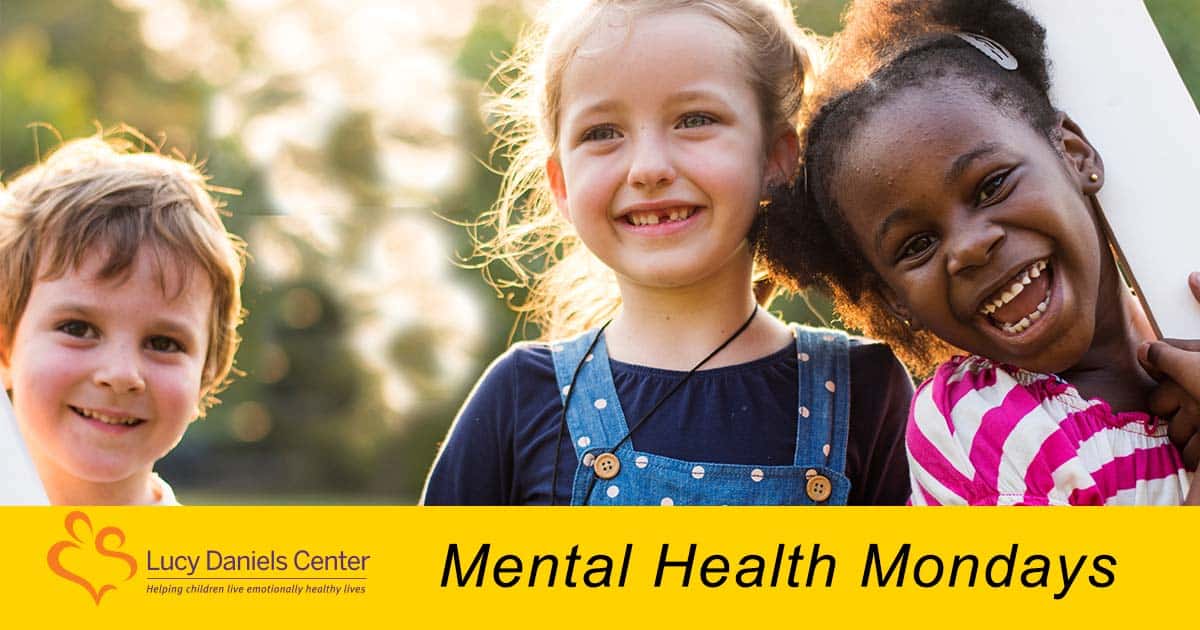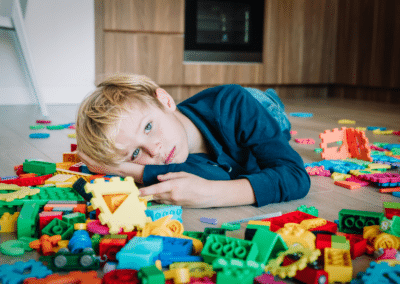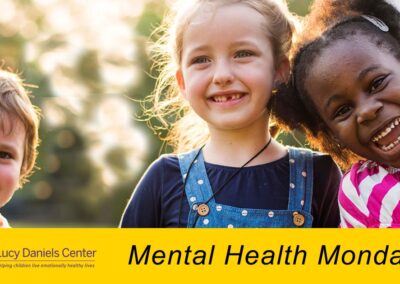Mental Health Mondays
Thinking About After-School Activities
There are many enriching after-school activities available to children of all ages in our community. While these activities expose children to new experiences and support their social, emotional, and cognitive development, it is equally important for parents to incorporate free time for play in their child’s daily routine.
Play, especially in the early years, is an important piece of development that is sometimes sacrificed to make room for more structured activities. Including opportunities for free-play in your child’s daily routine will enrich their overall development and add to their growing abilities to tackle and solve problems, persist through challenging tasks, and negotiate and compromise, all of which are necessary components for social and academic progress in later years.
What is open-ended free play?
True open-ended materials allow for countless possibilities that originate in your child’s mind. Unlike structured activities with set rules and expectations such as board games, soccer practice, or art classes, open-ended play requires that your child develop and carry out her own ideas. Open-ended play, while sometimes alongside or guided by adults, generally follows the lead and interests of the children involved. This type of play can occur independently, developing a child’s ability to sustain investment in her own entertainment, as well as in small groups, developing the entire group’s abilities to share, take turns, negotiate, and compromise on issues such as the direction of play themes and creative use of materials.
Why is play important?
Open-ended play provides children with opportunities to use their minds to imagine, create, and use objects symbolically, as well as develop and refine their flexibility and skills in negotiating, compromising, and sharing in relationships with others. Independent play helps children develop an internal dialogue and ability to focus, necessary components that will be helpful one day for independently reading, writing, and persisting through challenging academic tasks. Children who become independent players and collaborative playmates often carry these skills over into their school and learning habits.
Play with peers in open-ended ways provides children with opportunities to develop skills needed for all types of relationships, from close friendships to working as a group or team in school or extracurricular activities. When playing successfully with peers, children have to share ideas and listen to the ideas of others, sometimes convincing playmates to follow their lead and other times compromising and following the lead of others. Ideally, children should have regular opportunities for both independent and collaborative open-ended play.
What role do parents play?
Of course, free-play is not completely “free.” Parents play an important role in supervising and overseeing the play, helping children manage conflicts that become too big to manage independently. When parents or adults step in to mediate conflicts, they have an important opportunity to model the respectful sharing of different perspectives and the art of settling on a compromise.
As you consider afterschool activities for your child, keep in mind that open-ended play is an arena in which children develop and refine many of their strengths and interests. Taking time to notice developments in your child’s play could in fact provide you with clues about your child’s most genuine interests. Creating a balance between structured activities and free-time will enrich your child’s ability to participate fully in both types of activity.
Lucy Daniels School is an emotionally safe and supportive learning environment for children preschool-5th grade. Lucy Daniels School provides an alternative choice in our therapeutic school for children who struggle emotionally and academically in a mainstream school environment. At the Lucy Daniels School, each child’s education and therapeutic program is carefully tailored to his or her needs and strengths. Parents meet regularly with a parent guidance counselor. This collaborative approach helps children progress socially and academically to become successful and competent learners.



